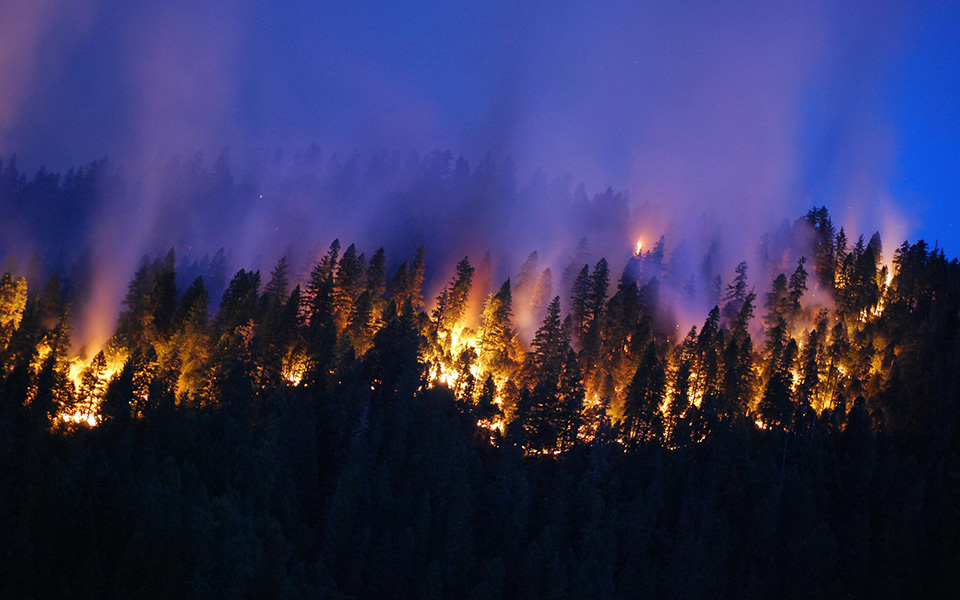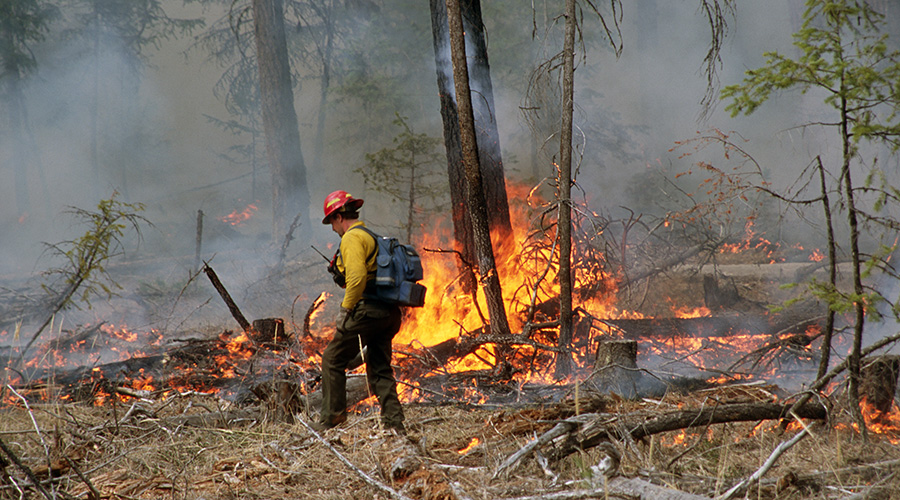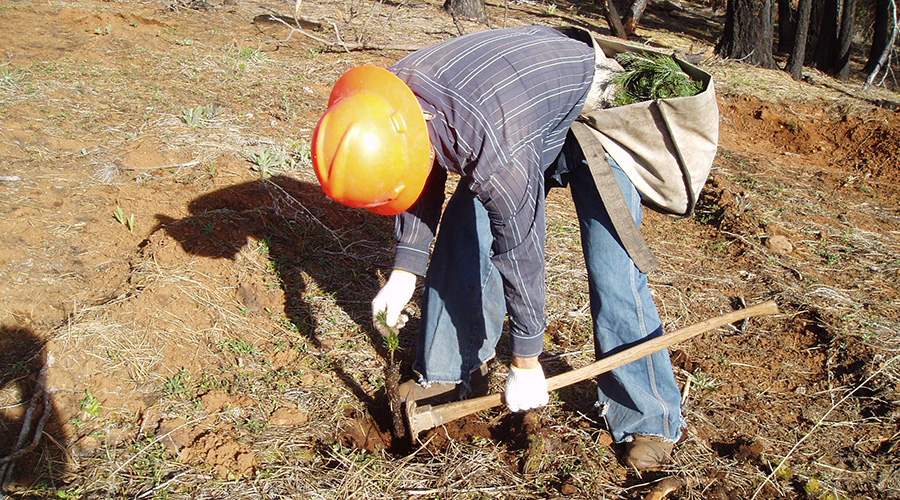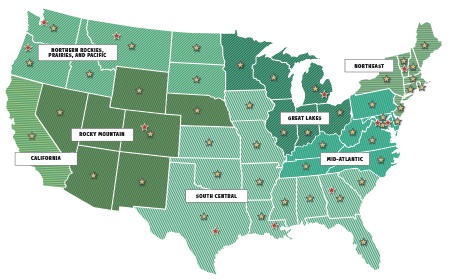
The 2014 Happy Camp Fire on Klamath National Forest, Northern California (Photo: U.S. Forest Service)
America’s national forests are a treasured resource, providing people and wildlife alike benefits. These include essential wildlife habitat, outdoor recreation opportunities, critical drinking water sources, supplies of wood products, and natural carbon storage.
Forests by their very nature are one of our most powerful tools for combatting climate change. By absorbing and storing atmospheric carbon—the underlying cause of accelerating climatic changes—healthy forests serve as “natural climate solutions.”

Prescribed fire to restore Colville National Forest, Washington State (Photo: U.S. Forest Service)
Unfortunately, many of our national forests are in poor condition, due to a legacy of mismanaged logging and grazing, long-term fire suppression, and underinvestment in their maintenance and restoration. Changing climatic conditions—including rising temperatures, changing rainfall patterns, and increasing droughts—are exacerbating these declines in forest health and leading to a dramatic rise in massive and destructive megafires.
The U.S. Forest Service, which manages the 193 million-acre National Forest System, estimates that between 65 and 82 million acres of national forest lands are in urgent need of restoration.
The National Wildlife Federation is partnering with The Nature Conservancy and American Forests to help increase the pace, scale, and quality of restoration and reforestation on our national forests. Accelerating the use of climate-informed and ecologically appropriate restoration is needed to ensure that these cherished forests can better cope with and adapt to the increasing impacts of a changing climate, as well as continue to act as natural climate solutions by absorbing and storing carbon.

Post-fire reforestation on Modoc National Forest, California (Photo: U.S. Forest Service)
With the support of the Doris Duke Charitable Foundation, this collaborative effort is promoting needed policies and practices for restoring America’s national forests in ways that reduce wildfire risks while providing clean and abundant water, healthy wildlife populations and habitats, and growing carbon stocks.
For More Information:
NWF Reports on Forest Restoration:
Toward a Shared Understanding of Climate-Smart Restoration reviews and summarizes recent scientific insights into how climate change is affecting America’s national forests and how climate-smart forest restoration can help sustain these cherished public lands.
A Guide to Advocating for Climate-Smart Restoration in National Forest Plans offers guidance for public engagement in the national forest planning process to ensure that newly revised plans adequately address climate considerations and concerns.
Policy framework: With input from many of the nation’s leading experts in forest policy and management we have developed a set of detailed policy recommendations to increase climate-informed forest restoration. Details of our policy recommendations can be found here.
Forest policy fact sheets: A summary of our policy recommendations is provided in the fact sheets below that outline key needs for 1) funding, 2) forest management, 3) reforestation, and 4) natural carbon sequestration.
Blog post: Restoring Our National Forests to Meet the Challenges of a Changing Climate













